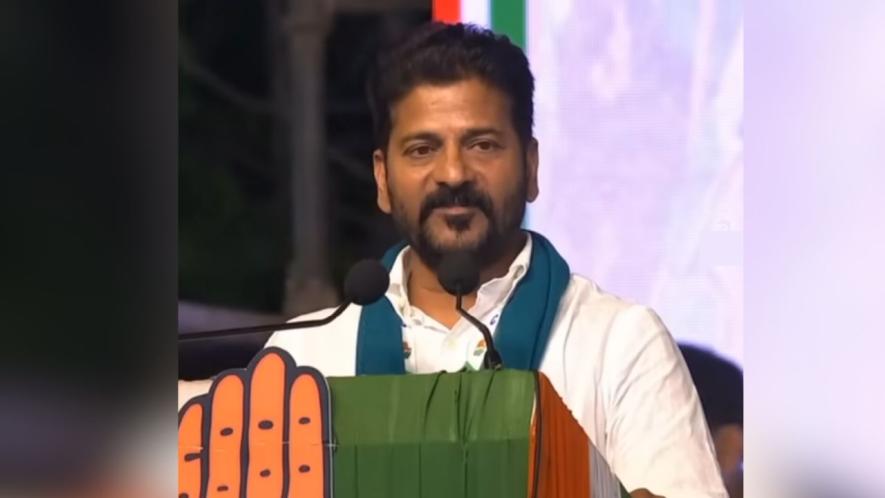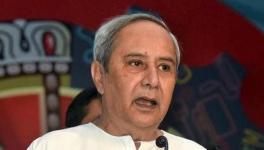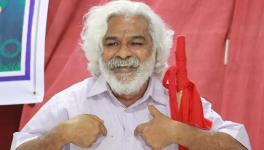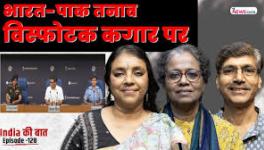Telangana: Scathing Commentary on CM & Speaker’s Delay

Revanth Reddy. Image Courtesy: Wikimedia Commons
In a strong admonition of both the Chief Minister and the Speaker, the Supreme Court gave several quotable quotes, which all politicians in India, especially those in Telangana, should feel ashamed of.
The Supreme Court condemned Chief Minister Revanth Reddy’s remark in the Telangana Assembly that, “no bye‑elections will happen … even if opposition MLAs want a bye‑election”, declaring “If this is said on the Floor of the House, your Chief Minister is making a mockery of the Tenth Schedule.”
Justice B R Gavai sharply questioned: “Having experience on an earlier occasion, was the CM not expected to at least exercise some degree of restraint? Did we commit a mistake by letting you go at that time and not taking action for contempt?”
Reaffirming that the Court values restraint, the bench remarked: “We respect the other two wings of democracy; the same is expected of the other two wings also.”
Justice Gavai also asked pointedly: “Did we err by not taking action at that time and issuing contempt? We are not concerned with politicians’ statements but with the individual who faced a similar situation.”
A one-word summary of the behaviour of the constitutional office holder, the Speaker, from the Supreme Court, is: “No MLA should be allowed to delay the process”, “Speaker does not enjoy constitutional immunity”, and said “Proceedings must be concluded … no later than three months.”
The Supreme Court formally called out the Speaker for year-long inaction, stressing its duty: “Even if the Speaker takes no action for four years, courts should watch it.”
From the summary of the judgment (bench of Chief Justice of India B.R. Gavai & Justice K. Vinod Chandran): “No MLA should be allowed to delay the process. The Speaker must draw adverse inferences if needed.”
“When functioning as an adjudicating authority in disqualification matters, the Speaker acts as a tribunal and is subject to the jurisdiction of the High Court and the Supreme Court. In this capacity, the Speaker does not enjoy constitutional immunity.”
“The disqualification proceedings against the 10 MLAs must be concluded as quickly as possible, and no later than three months.”
Justice Gavai pressed: “Why has not the Speaker's office set a deadline for deciding these petitions? As on today, how much time has passed since the first application? It appears to be a year.”
On the delay in even issuing notices, the bench criticised: “Should it happen at the fag end of the Speaker’s tenure? What about democratic norms?”
“We cannot allow a situation where the operation is successful, but the patient dies”, it said, reflecting frustration over procedural delay.
The Speakers’ decisions typically aren’t timed, but “since the Telangana Speaker has delayed adjudication … by more than a year, it warranted issuance of directions to him.”
Observing that notice was issued seven months after petitions were filed, the bench judged it “a breach of trust Parliament reposed in presiding officers.”
Will the Speaker Decide After Next Election?
On media reports on the April hearing before the High Court in Telangana, the apex court said: “If this is said on the Floor of the House, the Chief Minister is making a mockery of the Tenth Schedule,” referring to his remark that “no by-elections will happen … even if opposition MLAs want a by-election.”
A single-judge of the High Court in Telangana (September 9, 2024) directed: “To fix the hearing schedule within four weeks… in case no communication, the court would reopen the matter suo motu and pass appropriate orders.” That was overturned by a Division Bench (November 22, 2024), which stated:
The Speaker must decide the disqualification petitions within a “reasonable time,” considering the Assembly’s five-year tenure and the anti-defection law’s purpose.
Zero Tolerance Under Constitution: A joke!
These quotes underscore the Supreme Court's zero-tolerance stance toward political manoeuvring that impairs constitutional processes. The firm rebuke to both the Chief Minister’s cavalier remarks and the Speaker’s inertia establishes a potent precedent: legislative actors wielding power must remain accountable under constitutional jurisprudence.
·The Court explicitly erased the High Court’s “reasonable time” ambiguity and set a clear three-month deadline, stressing that no political actor—especially a Speaker —can treat time as elastic.
·By warning against adverse inferences, the Court indicates that tactical delays will be penalised.
The Court was blunt and unapologetic in criticising the Chief Minister’s Assembly rhetoric, underlining that defamatory or misleading legislative statements may warrant judicial scrutiny.
‘Aayaa Raam Gayaa Raam’
Recently, a media person asked a politician, ‘Where are you in which party now?’ This is a shameful situation.
After the formation of Telangana, ‘aayaa raam’ and ‘gayaa raam’ continues in politics to this day. In the beginning, the disqualification of only three MLAs was sought from the Speaker -- T. Venkat Rao, Kadiyam Srihari, and Danam Nagender -- who won the November 2023 Assembly elections on a BRS (Bharat Rashtra Samithi) ticket but defected to the Congress following its victory in the polls. Then, seven more MLAs were added to the list, when the matter was taken to court along with former Speaker Pocharam Srinivas Reddy, who presided over the House when the BRS won for the second time in 2018.
Defections go beyond several terms of the Assembly elections. When BRS won its second term, 13 MLAs of the Congress had defected to the former, which resulted in incumbent Deputy Chief Minister Mallu Bhatti Vikramarka losing his status as Leader of the Opposition.
The BRS (earlier Telangana Rashtra Samithi) had won 88 seats, while Congress won 19 in the 119-member Assembly. We saw some shifting from Congress to TRS. Though it was defection, it became ‘legal’ as it was considered as ‘merged’, meaning the Congress’s legislature party was swallowed by TRS as two-thirds of its members, based on the rule of the anti-defection law under the 10th Schedule of the Constitution. Under the two-thirds rule, it became legal defection, while before that, it was illegal ‘defection’!
There was an influx of 25 MLAs from ‘other parties’ from 2014 to 2018, including 12 MLAs from Telugu Desam Party, seven from Congress, three from YSR Congress, two from the Bahujan Samaj Party, including one from Communist Party of India.
‘Operation Successful, Patient Died’
In the context of the recent judgment of the Supreme Court on July 31, 2025, the sarcasm of ‘operation successful, patient died’, the apex court said it cannot allow the disqualification petitions to remain pending during the term of the Assembly and allow the defectors to reap benefits of the delay.
The SC said:
“The question, therefore, that we ask ourselves is as to whether the speaker has acted in an expeditious manner, when expedition was one of the main reasons why the parliament has entrusted the important task of adjudicating disqualification petitions to the speaker/chairman. Non-issuance of any notice for a period of more than seven months and issuing notice only after either the proceedings were filed before this court or after this court has heard the matter for the first time cannot by any stretch be envisaged as acting in an expeditious manner.”
As rightly said:
that the failure to issue directions to the speaker in the facts and circumstances of this case would frustrate the very objective of the tenth schedule….If we do not issue any direction, it will amount to permitting the speaker to repeat the widely criticised situation of ‘operation successful, patient died’.
In this context, Justice Gavai asked, “Though a period of more than one year and two months has passed, the time has not come for this court to intervene?”
Sad State of Constitution and Officers
In one word, the court said the “CM is making a mockery of the Tenth Schedule”, then warned “Did we err by not issuing contempt earlier?”, and then “Was the CM not expected to exercise restraint?”
This was not criticism on the edit page of newspapers, it was admonition by the apex court! Is this not enough to resign from chief ministership? In earlier decades, Neelam Sanjeeva Reddy or N. Janardhan Reddy left the seat of CM due to adverse comments from the courts of law. What has happened to political ethics?
The writer is a Former Central Information Commissioner and Professor of Law, Hyderabad. The views are personal.
Get the latest reports & analysis with people's perspective on Protests, movements & deep analytical videos, discussions of the current affairs in your Telegram app. Subscribe to NewsClick's Telegram channel & get Real-Time updates on stories, as they get published on our website.
























